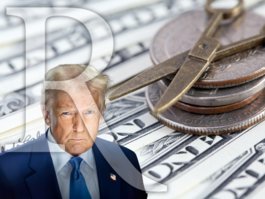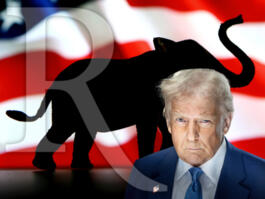The GOP's Dubious Populism
A Commentary By Joe Conason
The most revealing moments in President Obama's State of the Union Address were not in his remarks, but the reaction to them by those listening on the Republican side of the aisle.
When he proposed to recover a "financial responsibility fee" -- in plainer English, a bank tax -- from the largest and most heavily leveraged Wall Street firms, the Republicans sat on their hands and scowled, while Democrats cheered and whistled. And when he warned that the Supreme Court's latest decision would open the political process to mega-corporations and their foreign owners, the Republicans were so enraged that they have since accused him of lying.
On both counts, the politics and policy are subject to reasonable disagreement -- but the facts support the president. More importantly, however, is what both issues say about the continuing character of the Republican Party at a time when its leaders are counting on the "conservative populism" of the "tea party" movement to revive the party's fortunes.
Consider the possibility of unchecked foreign influence in American political campaigns, a change that would seem certain to irritate the self-styled super-patriots of the Republican right. Although Supreme Court Justice Samuel Alito appeared to mutter that the president was "not right" during the speech -- and was then echoed by every right-wing commentator, from The Washington Times to The Wall Street Journal -- nonpartisan observers believe that Obama is indeed correct.
"With the corporate campaign expenditure ban now being declared unconstitutional, domestic corporations controlled by foreign governments or other foreign entities are free to spend money to elect or defeat federal candidates," said J. Gerald Hebert, executive director and director of litigation at the Campaign Legal Center in Washington. Fred Wertheimer of Democracy 21, a longtime reform advocate, explained why that is true, despite existing legal prohibitions against any contribution or expenditure by a "foreign national" to influence a federal, state or local election.
The current statute defines a foreign corporation as any firm that is "organized under the laws of or having its principal place of business in a foreign nation." So a company organized in Germany or headquartered in China would still be subject to the existing ban on donations.
"But there are domestic corporations -- those organized under state law in the United States -- which are and can be controlled by foreign interests," Wertheimer noted. Until the Supreme Court overturned the ban on corporate spending in the Citizens United decision, those foreign-controlled companies were subject to the same restrictions as American-owned firms. By striking down that prohibition, the court's Republican majority freed any foreign-controlled domestic company to spend its funds directly to influence our elections.
At least some of the founders of the "tea party" movement found this development disturbing -- and that may be why the Republicans reacted so angrily when the president mentioned it. The same may be said of the new tax on big banks, which Republicans have vowed to reject even though it is designed to recoup the costs of the bailout that was so unpopular among their "populist" constituents.
Again, the facts are simple enough. The legislation that established the Troubled Assets Relief Program -- with many Republican votes -- required the president to claw back the program's hundreds of billions of dollars through a dedicated tax. As designed by the Obama economic team, that tax falls solely on the largest financial firms and penalizes them according to the degree of leveraged risk those firms have taken on. Its designation as a "responsibility fee" is not merely a way to avoid uttering the word "tax," but recognizes that the economic and social costs of the recession must be charged to those companies and their irresponsible (and sometimes illegal) practices.
Again, the Republican response is anything but populist, unless that term has lost all meaning. The Republican National Committee chairman, Michael Steele, and an array of the party's elected officials marched to the microphones to parrot the same arguments articulated by the bankers: They've already paid back the money! They're going to pass the tax on to their consumers! And a recession is no time to raise taxes anyway!
The new GOP idols, Scott Brown of Massachusetts and Marco Rubio of Florida, were the most eager critics of any attempt to tax the bankers.
The more Republicans claim to change, the more they remain the same. The more they wrap themselves in dubious populism, the more they will defend the wealthy and powerful, without respect to national sovereignty and the national interest.
Joe Conason writes for the New York Observer.
COPYRIGHT 2010 CREATORS SYNDICATE, INC.
See Other Political Commentary.
See Other Commentary by Joe Conason.
Views expressed in this column are those of the author, not those of Rasmussen Reports.
Rasmussen Reports is a media company specializing in the collection, publication and distribution of public opinion information.
We conduct public opinion polls on a variety of topics to inform our audience on events in the news and other topics of interest. To ensure editorial control and independence, we pay for the polls ourselves and generate revenue through the sale of subscriptions, sponsorships, and advertising. Nightly polling on politics, business and lifestyle topics provides the content to update the Rasmussen Reports web site many times each day. If it's in the news, it's in our polls. Additionally, the data drives a daily update newsletter and various media outlets across the country.
Some information, including the Rasmussen Reports daily Presidential Tracking Poll and commentaries are available for free to the general public. Subscriptions are available for $4.95 a month or 34.95 a year that provide subscribers with exclusive access to more than 20 stories per week on upcoming elections, consumer confidence, and issues that affect us all. For those who are really into the numbers, Platinum Members can review demographic crosstabs and a full history of our data.
To learn more about our methodology, click here.



